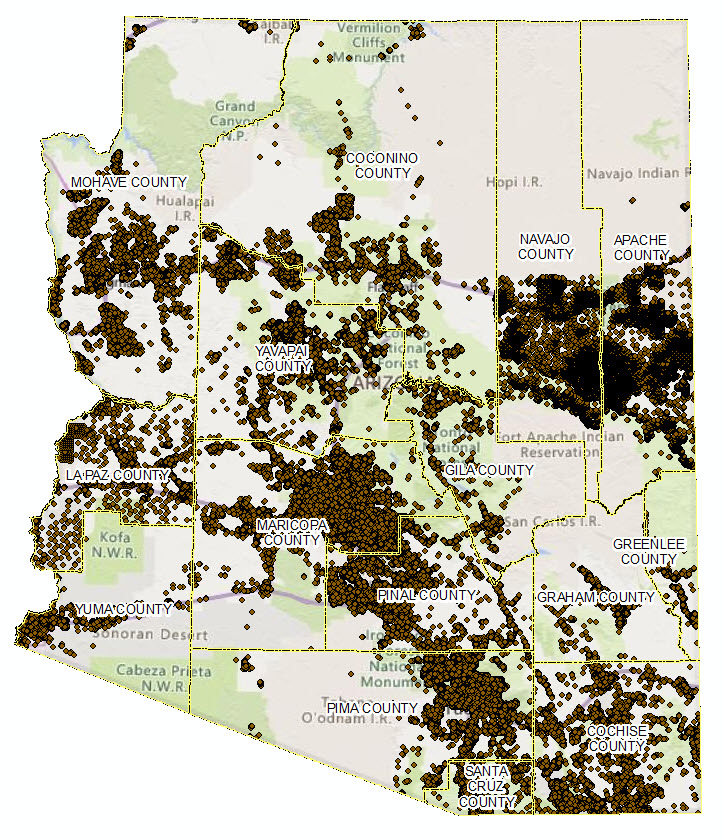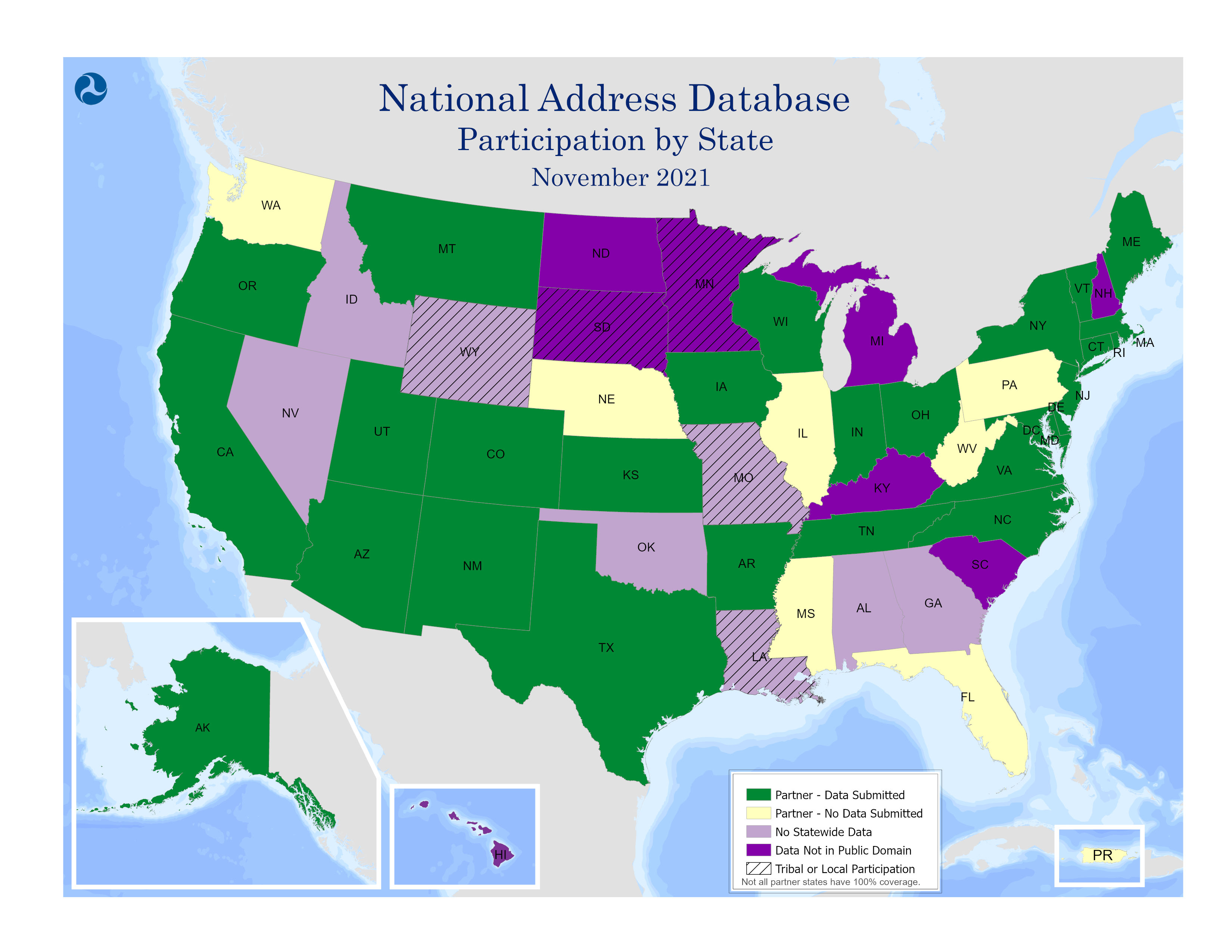National Address Database
Addresses are created by local address authorities that are usually in city, county, or tribal agencies. The data are intended to support delivery of services like utilities and emergency response. Ideally, addresses are composed of both a label (street number and name) and an x-y coordinate pair (latitude/longitude or equivalent) and the addresses are provided to the local 9-1-1 authority as soon as a building permit is issued to facilitate emergency responses to accidents on construction sites. Rolling up local address point records to the state to aggregate and then to the national level has value for a variety of stakeholders across local, state, tribal, federal, and private sector users. Working together, we can save lives, reduce costs, avoid duplication, increase revenues, improve service, and foster efficient and effective government. A National Address Database is CriticalIt Saves Lives Addresses are the most commonly used way to communicate the location of an emergency. Fire and police agencies respond to emergencies that are reported to the 9-1-1 call centers known as public safety answering points (PSAPs). The PSAPs across the nation use many different ways of locating people in distress. Address points allow them to pinpoint the locations of structures so that even at night, or in a dense fog or snow that limits visibility, they can get to the correct location right away. Going to the wrong house in the case of a heart attack can waste several minutes and cost lives. It Saves Energy & Time Many government agencies operate large fleets of vehicles. For example, the US Postal Service manages over 200,000 vehicles in the largest civilian fleet on Earth. Its vehicles are driven 4.1 million miles to 150 million residences and consume over 400,000 gallons of fuel per day. While the USPS routing may already be optimized, many other fleet operations are not. The use of precise address points is required to achieve the maximum efficiency in automated vehicle routing software that can typically save up to 15% of the fuel and maintenance costs for a vehicle fleet and allow existing staff to accomplish their work more efficiently. It Improves Services Addresses are used to locate residences, businesses, and other “built” locations for the provision of nearly all government services such as utility hookups, in-home social services, licensing, and permitting. The private sector also uses accurate addresses to improve its bottom line and customer service. Development of the National Address DatabaseIn June 2015, the USDOT held a National Address Database Summit, with representatives from local, state, tribal, and federal government, the private sector, and nonprofit organizations, including NSGIC. A key recommendation of that summit was a minimum content approach. In October 2015, the USDOT launched a pilot project with Arizona, Arkansas, and Boone County, Missouri to explore workflows and understand best practices for address roll-up, compare data schemas, develop a minimum content guideline and associated data schema, and explore geocoding options for those areas with fewer resources. Additional address programs volunteered to provide data during and after the pilot program concluded in July 2016. With intermittent funding, development of the National Address Database has continued with a developer performing quality control of data submissions and assisting states with ETL (extract/transform/load) development. NSGIC has been active in encouraging state members to participate in the National Address Database, and hosts a repository for the data as it undergoes processing.
ChallengesUncommitted Funding Since the National Address Database Summit was held in 2015, actual development of the database has stopped and started four times due to a lack of funding. Data has languished in the queue while awaiting processing and assistance from the USDOT developer. There is a strong need for consistent, adequate funding to support a National Address Database developer. Data Not in the Public Domain While NSGIC believes that addresses are public information, some states and localities have limited the accessibility of this data. Lack of Statewide Address Data Program Resources
|

 NSGIC strongly supports the federal effort to develop a National Address Database to collect address points from all states and territories.
NSGIC strongly supports the federal effort to develop a National Address Database to collect address points from all states and territories. 